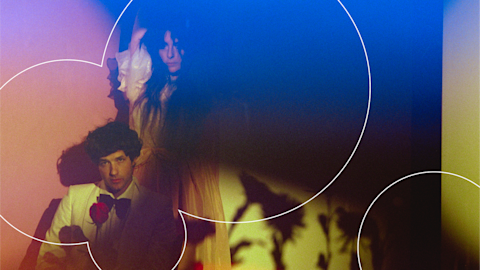Matt Sadie is used to being an artist’s everything. From Phoenix to Modest Mouse, he’s heard and seen it all. For him, all that a manager does can be boiled down to one thing: clearing roadblocks so an artist can shine. In this Co.Lab, he shares tips for finding the manager best equipped to support you alongside strategies for getting the best out of them.
Spotify for Artists: What does a typical day look like for you now? And how do your previous experiences play into what you do?
Matt Sadie: I might be working with one artist on a musical release. I might be helping another with a video or artwork for an album. Another one might be putting out a book, and I need to work with the publisher to ensure that it’s being promoted correctly or that the photos are cleared.
I’ve worked at record labels as well as in music distribution and music marketing. I’ve learned how the music business works. That’s important and something I recommend for potential managers. When you’re advising an artist on every aspect of their career, you’ve got to have a deep and broad
understanding of what it’s going to take. You don’t want to give them bad advice. If you don’t know what you’re talking about, then you’re in trouble.
What is the function of a manager? How have you seen that role evolve?
You need to be a clear and central communicator to an artist, and the filter for all corners of their business. The manager helps allow an artist to do what they do best, which is to make music and express themselves creatively. To do so, we have to make everything as clean, straightforward, and digestible as possible so they understand that their business is taken care of and feel involved in the process, but aren’t weighed down with things that they don’t need to be concerning themselves with. Over time, the role of a manager has evolved enormously. I think people have this vision of a manager as someone who sits in the back of the studio on a beanbag, smoking weed, and saying, “Yeah, that sounds sick.” That just isn’t the case.
From the perspective of an artist, which team members do you think are essential and which can be hired down the road?
Ultimately the music is the most important thing. Without that being right, very little else will help, so having someone that gets you there is crucial, whether it’s a co-writer, producer, or a musical partner. Great music can overcome deficiencies in your team but, if the music isn’t right, even a great team will struggle.
How can an artist balance being the creative epicenter of a project while taking direction and advice from those around them?
First and foremost, it’s about trust. You have to perceive that everybody is working for you, understands you, loves what you’re making, and feels united and focused on a common goal. Beyond that, it’s just about being really, really particular about who you’re hiring. Don’t necessarily leave that to the manager to do. Work side by side with them and meet those individuals yourself.
How do you transition through collaborators and evolve your team?
It depends on the team members. You want to have people around you who are super respectful and can communicate well. That’ll create a safe environment for everyone to express themselves and foster an open dialogue about your project and how you see it changing so that it’s not some weird surprise or an awkward moment when a change has to happen.
I also think a lot of people in the music industry are used to it. It’s not a huge surprise, particularly when an artist has a history of changing members or if they see their team as always evolving. Core team members are harder. The lawyer, the publicist, the manager, the agent— those are a bit more tumultuous and need to be handled more carefully. It can be like a relationship breakup.
What good but perhaps not-so-obvious advice have you gleaned during your career?
The main thing about building a team is to have people who respect your creative vision and share your goals. It seems really obvious, but that’s the key. They have to be fans of your music and your art. They have to really care about it. When I have a developing act who tells me they’re going to send me songs and then they don’t, I’m like, “Where is it?!” I don’t just want to hear their music from a business perspective, I want to hear it because I’m a fan and it’s exciting.
-Spotify For Artists

